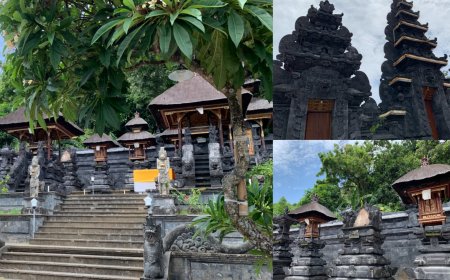Melasti Tradition: A Procession of Purification of Self and the Universe
The Melasti procession is an important Hindu ritual performed ahead of Nyepi to purify oneself, the universe and life. The ritual aims to erase sins and spiritual imbalances, as well as strengthen the connection with God and nature. Performed by the sea or a lake, Melasti involves a series of ceremonies such as the preparation of offerings, a procession, purification with seawater, and a communal prayer for blessings.
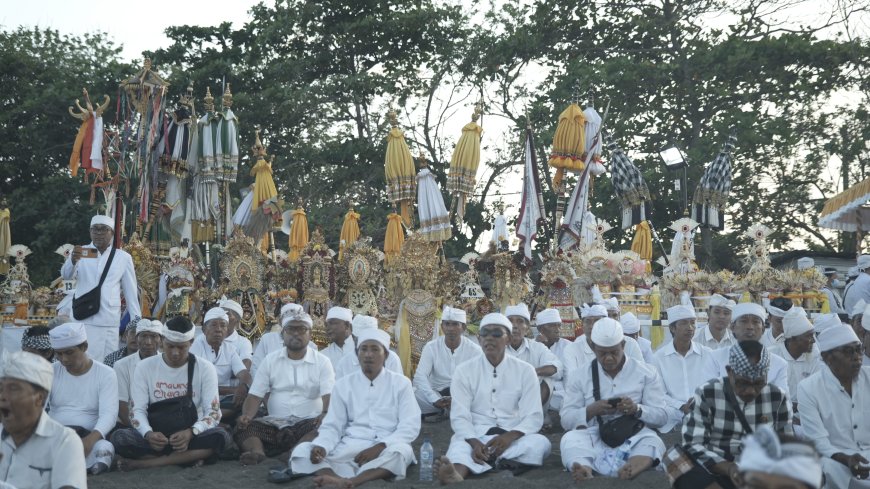
The Melasti procession is an important ritual in Hinduism to purify oneself, the universe, and all forms of life. It is performed before Nyepi Day as part of a series of spiritual preparations in the Balinese Hindu calendar. The procession is held by the sea or lake-a place believed to have great spiritual energy and be able to cleanse sins and imbalances in humans.
Melasti is rooted in Hindu teachings about the importance of harmonious relationships between humans, nature and God. In this procession, Hindus parade various religious symbols such as inscriptions, saji, and offerings that are believed to bring blessings and cleanse the universe of negative energy. The sea or lake is chosen because it is believed to have a purifying power that can cleanse oneself and the universe.
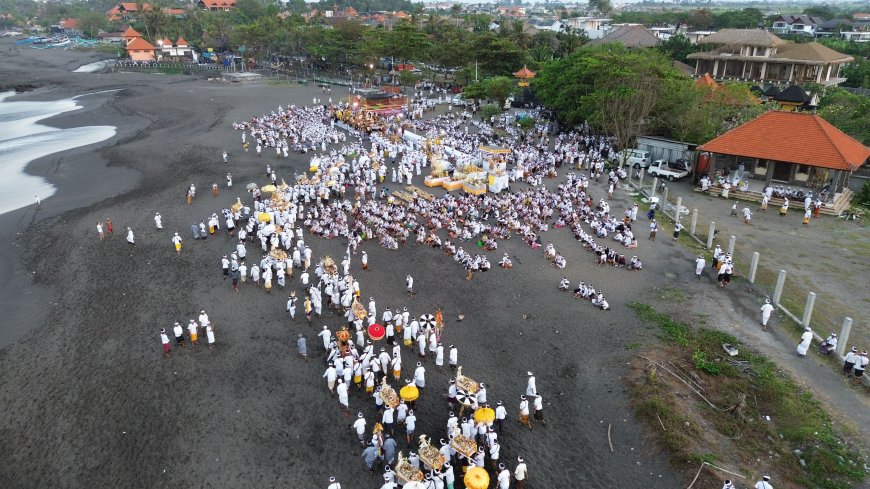
Melasti Procession in Mengwitani Village (Source: Personal Collection)
The Melasti procession is performed with the main purpose of purifying oneself from all sins and inner darkness and restoring the purity of the universe. This purification is expected to remove any spiritual imbalances that exist, both within the individual and in nature. One of the main purposes of Melasti is self-purification, where Hindus are guided to free themselves from sins and spiritual disturbances, both conscious and unconscious. This process is an important step towards achieving inner purity and harmony with oneself.
In addition, through Melasti, Hindus also express gratitude to God and the universe, while strengthening the spiritual connection with both. The ritual aims to ensure the balance of the universe that gives life to mankind. Melasti also brings blessings for the whole of life, not just for the benefit of individuals, but for the common welfare, in the hope of bringing safety, peace, and abundance to society, nature, and all living things. In addition, this procession reflects the responsibility of Hindus to preserve nature and maintain harmony between humans and the surrounding environment. The sea, which is the main place for the ritual, is considered a symbol of the power of nature that must be respected and preserved.
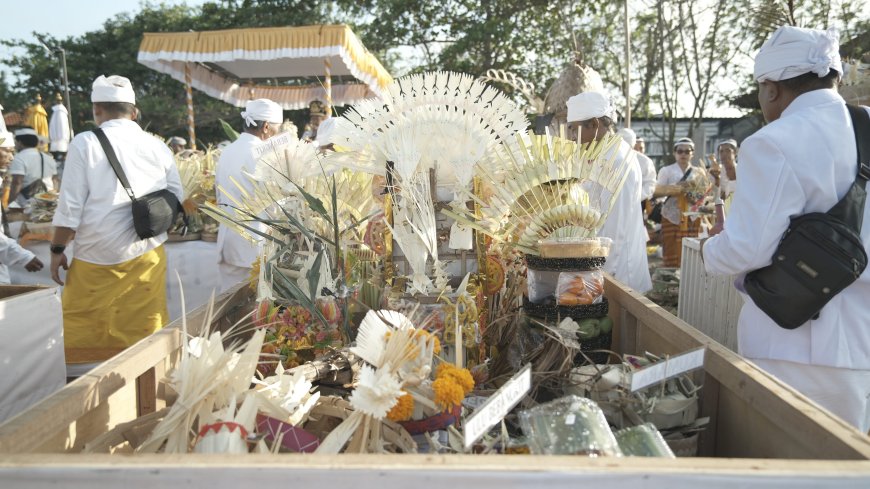
Melasti Procession in Mengwitani Village (Source: Personal Collection)
The Melasti procession has a very deep spiritual meaning in Hinduism, especially for people in Bali. Each stage of the ritual contains a philosophy that is closely related to purity and harmony. One of the main meanings of Melasti is spiritual and physical purification, where this ritual serves to cleanse the physical and spiritual aspects of Hindus. This purification is considered a step to harmonize with the universe, as well as to cleanse the mind, body, and feelings from all forms of defilement, both outwardly and inwardly.
In addition, the sea, which is the main place in the Melasti ritual, symbolizes the power of nature that must be preserved and respected. The sea water used for purification also symbolizes fertility, life, and purity that needs to be maintained so that nature remains balanced and harmonious. The procession is also an attempt by Hindus to return to God, reminding them that they are part of His creation that must live in harmony with nature and all living things. In Balinese tradition, Melasti is also interpreted as an effort to restore cosmic balance between the human world (bhuwana alit) and the universe (bhuwana agung). This balance is considered important to maintain survival in a world full of dynamics and change.
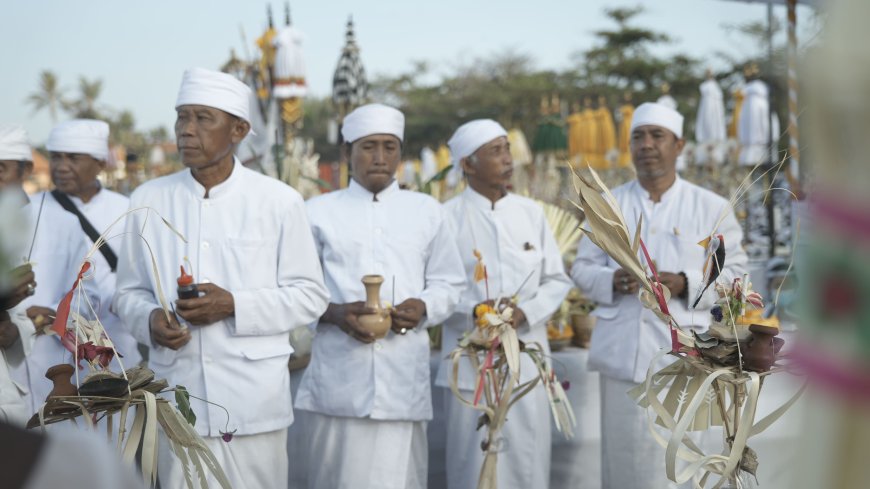
Melasti Procession in Mengwitani Village (Source: Personal Collection)
In traditional Balinese literature, lontars containing teachings and instructions on religious ceremonies describe the Melasti procession in detail. Lontar Dewa Ruci is one such text that elaborates on Melasti, emphasizing the importance of maintaining physical and inner cleanliness through self-cleansing before celebrating religious holidays. It teaches that every ceremony requires a deep understanding of the symbolic meaning of each stage. Lontar Surya-Siddhanta also discusses the importance of position and timing in the performance of Melasti, which is organized according to the Balinese calendar and the cycles of the universe. The ritual aims to balance spiritual energy, both for the individual and the universe.
Melasti is an important procession in Hinduism, especially in Bali, which has deep spiritual meaning related to the purification of the self, the universe, and the achievement of harmony between humans and nature. This ritual is not only a means to cleanse sins, but also a way to maintain the balance between human life, nature, and God. Through this procession, Balinese Hindus express gratitude and strive to live in harmony with all the elements in this world.




